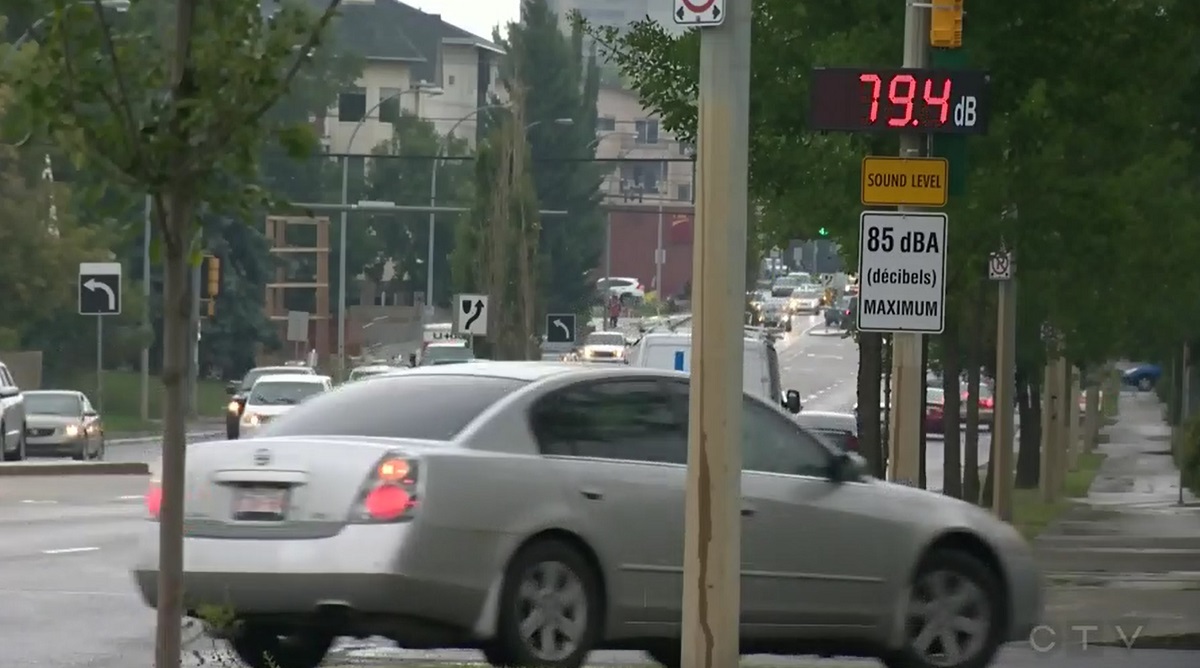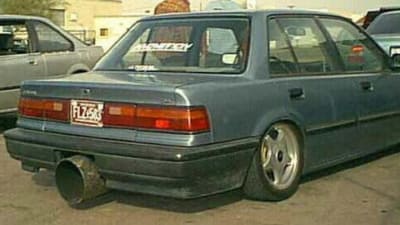
CITY Council is seeking information from Edmonton about a fine for noisy car program to be introduced in Toronto. CTV photo.

VEHICLE loud noise will trigger an alarm, that will take a photo of your car and sends a ticket to your home. Courtesy photo.
Toronto City Councillors have had it with noisy hot rods and muscle cars and are exploring state-of-the-art ‘noise-capturing technology’ to target and ticket those hopped-up vehicles creating loud noise on our streets.
There have been many complaints from Humber Bay Shores, and other neighbourhoods, about loud vehicles racing around the area late at night waking up residents.
City councillors are looking towards technology being used in Edmonton to crackdown on the din.
Toronto City Council have requested General Manager Chris Murray contact the City of Edmonton about their Vehicle Noise Enforcement Program, to see if it will work here.
Murray will report back to the Infrastructure and Environment Committee later this year on acquiring the noise-fighting technology for a similar pilot project in Toronto.
The General Manager is to work with Transportation Services, 311 Toronto, Licensing and Standards and Toronto Police to ‘identify areas across the city where chronic complaints of excessive vehicle noise have been reported.”
Edmonton City Council in 2017 began work on identifying excessive noise locations in about 40 areas of the city. The noise monitoring equipment was installed in nine locations, based on existing infrastructure required for installation and high complaint volumes.
‘Noise-capturing technology’ is being used in different parts of the city that triggers when noise levels exceeded 95 decibels,” according to an Edmonton report. “The technology takes a picture of the vehicle in question for the purposes of mailing a warning or issuing a ticket to repeat noise offenders.”
The ticket is automatically mailed to the offender, much like a traffic camera ticket for speeding.
The equipment records noise 24 hours a day. Events exceeding the threshold were recorded and data was sent to officers for review.
“The equipment is capable of detecting and recording audio levels and video images when specific noise levels were exceeded,” according to the report.
Edmonton City officials said the technology led to officers issuing 138 violation tickets in 2020, 131 warnings for noise-related matters and an additional 109 notices to repair vehicle defects.
Throughout the duration of the pilot program, peace officers monitored more than 40 locations for excessive vehicle noise based on complaint information. In total, three static and one mobile system were used for the pilot program and were rotated through the locations.
Peace officers were deployed to these locations to verify the information obtained from the equipment, identify offending vehicles in real-time, disrupt driver behaviour and take any necessary enforcement action.
“Vehicles with modified or after-market exhaust systems and widened exhaust outlets are both sought and targeted for enforcement under the Traffic Safety Act.”
Results were mixed over the course of the pilot; a single noise incident resulted in enforcement action being taken, utilizing a combination of the enforcement officer’s observation along with video and audio recording of the infraction.